![]()
Logion 1: "Whoever lives the interpretation of these words will no longer taste death.”
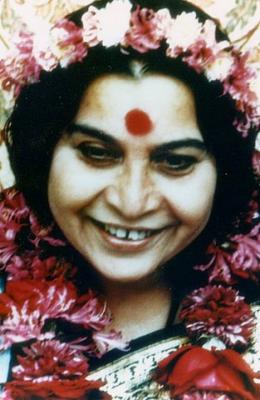
"This future salvation means two things: deliverance from mortality, and perfected fellowship with God. The Gospels do not say much about resurrection, but the saying of Luke 20:34-36 (cf. Mk. 12:24-27) makes it clear that eschatological salvation includes the whole person. Resurrection life will have something in common with the angels, namely, the possession of immortality. This immortal resurrection life is the life of the Age to Come (Lk. 20:35). The evils of physical weakness, sickness, and death will be swallowed up in the life of the Kingdom of God (Mt. 25:34, 46).” (Ladd 1993, 73)
"But you know that you have eternal life. You can never die. Death is not this body disappearing. Death is where you are absolutely without any control of your soul. Once you are a realized soul you have all the control, all the powers to take your soul wherever you feel like to be born if you like—if you don't want you will not be born—to be born with the people, in the families, in the communities, wherever you like.”
THE MOTHER: Messiah-Paraclete-Ruh
To Achieve Complete Freedom, Cabella, Italy—May 7, 1995
"Birth, play, marriage, children, old age — life is finished. That is not living! Life is much deeper and more wonderful... When you know God there is no more sorrow.
All those you loved and lost in death are with you again in Eternal Life. The souls of those loved ones who departed before will come to welcome: fathers, mothers, wives, children, friends. Hundreds and thousands and millions of them! From hundreds and thousands and millions of past lives and rebirths! From hundreds and thousands and millions of millenniums ago! How many wives we must have had in previous lives and how many husbands God alone knows.”
THE MOTHER: Messiah-Paraclete-Ruh-Devi
London, U.K.—June 21, 1981
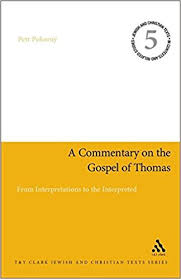
Opening sentence and logion 1
32,10–14a page / lines
These are the hidden words which the living Jesus spoke.
And Didymos Judas Thomas wrote them down.
And he said:
“Whoever finds the meaning of these words will not taste death.”
This saying has its Greek parallel in P.Oxy. 654,1–5; The text there is damaged but obviously corresponds to the Coptic version, with only the cognomen Didymos missing.
The reader of the first lines in fact hears three voices and the witness of three persons: Jesus, Thomas, and the narrator. Jesus is proclaiming the words of life, while the two others make the reader aware that it is Jesus who is speaking. All three invite the reader to become their fellow.1
The hidden words relate to a mystery that is proclaimed by Jesus and can thereby become manifest (log. 5, 6:5–6). The problem is that people are alienated. They “live in drunkenness”; they do not know that the most precious value (“pearl”) is in their possession (log. 76); they do not seek it (log. 92); and they ignore God as the Father: they have not “ears to hear” (see log. 8:4 and 96:3).
The proclaimer is the living Jesus, which means that his words mark out the way of life and are themselves the light (log. 50). To hear and follow them means the resurrection of that which has already come (log. 51). Jesus participates in the power of God.
The words are the individual sayings. Each of them is like a call awakening the reader from his sleep (“the word is very near to you; it is in your mouth and in your heart for you to observe”),2 but at the same time the words as a whole constitute a wisdom that offers a true orientation in life and may lead the awakened people on the true path. The living Jesus spoke to them: the past tense makes the reader aware of the fact that divine revelation has entered our temporal dimension. It has been comprehended in human words and written in letters and ink at a certain time, with which the proper names Jesus and Thomas Didymos are bound together. Nevertheless, this was not an aspect that the author of the Gospel of Thomas intended to stress. For him, Jesus—who is permanently bound together with God as the Living One—is an ever-present mediator of salvific wisdom. As we noted in the introduction, this author’s christology is different in principle from the christology of death and resurrection, because in his view Jesus is the ever-present mediator between human beings and God. The incarnation has simply made people aware of him as a dimension of God’s being. This is an idea that has its analogy in canonical texts such as 1 Cor 8:6 and hymns such as Col 1:15–20; Heb 1:1–2; or the prologue of the Gospel of John. In the mainstream church, however, the time of Jesus’ temporal life “on earth” is clearly the normative period.
In the canonical Gospels Jesus declared that the time of his presence on earth would be limited by his death (Mark 2:20 and parallels), but here it is instead the spiritual death (the “not seeking”) of individual human beings that limits or dis rupts communication with God as mediated by Jesus: “Look for the Living One while you are alive” (log. 59).3
The sayings are eternally valid, since their source is the living Jesus who participates in eternal life. He “has” it (Rev 1:18), because he is the origin of the All; he is omnipresent and practically identical with the All, and still he transcends it (log. 77; cf. John 1:10).
“And he said” may grammatically refer to Thomas, but it is Jesus who speaks here—the Living One. Only the Living One can proclaim the overcoming of death (will not taste death). In the Gospel of John we read the words of Jesus: “I tell you, whoever keeps my word will never see death” (8:51; cf 5:24). Here this means any one who finds the meaning or interpretation4 (Gr. hermeneia5). To find the meaning means to realize that what the living Jesus says is a matter of life and death—the beginning and the end in the eternal sense and at the same time the beginning and end of the Gospel of Thomas: “. . . he sought the one” (log. 107) and “whoever has found himself” (log. 111:3). 6
This interpretation presupposes a certain amount of information (teaching), but at the same time it is a matter of inner harmony with the divine truth. In the introduction we noted that in the Hymn of the Pearl from the Acts of Thomas the prince who lived alienated in a foreign country awoke from sleep and recognized the voice of his father, the king, only when he saw his father’s letter. Reading it, he declared, “What was written concerned that which was engraved on my heart” (Acts of Thomas 111)7; this later narrative may nonetheless be used as a metaphor for the discovery of the meaning of the written words of the Gospel of Thomas. To find orientation in the alienated world means (1) to know the sayings of Jesus and (2) to achieve an inner resonance with their content, to understand that they mediate the way to God himself, to the Father (see sayings 18 and 19, which also close with the promise of not tasing death).
A Commentary on the Gospel of Thomas
Petr Pokorny, T&T Clark; Reprint edition (December 22, 2011) p. 36-37
1. Valantasis 1997.
2. Deut 30:14, quoted by Paul in Rom 10:8.
3. A trace of the experience reflected in the Synoptics can be found log. 38:2. Cf. the comment on log. 60.
4. Attridge 1989.
5. The Greek expression is taken over in the Coptic translation. Coptic has taken over many Greek expressions.
6. Hedrick 1994, 117ff.
7. Translation by Elliott 1999.
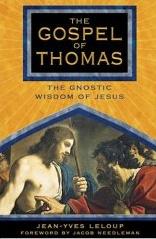
LOGION 1
Yeshua said:
Whoever lives the interpretation of these words
will no longer taste death.
(CF. JOHN 5:24, 8:51-52; MATT 13;10-15.)
Hermeneutics, or the art of interpretation, implies something more
than exegesis, which often limits itself to reconstructing the
context of a scripture in order to explain its structure and meaning—
and forgets to look for deeper Meaning. It is like measuring the
structure and thickness of the shell and forgetting to taste the
almond inside it.
Hermeneutists[1] are thirsty for Meaning and are not as interested in
the color and form of the water jug as they are drinking at the
Source that is accessible through the words. To be a hermeneutist in
this sense means to live the interpretation of the logia of Yeshua.
It means to become One—if only for a moment—with that Meaning. This
moment of unity awakens in us the Presence of the Uncreated and the
taste of something beyond that which is composite and therefore
subject to decomposition—in other words, the taste of something
beyond death.
There are different ways of interpreting a piece of music. Players
sometimes do a disservice to the composer through their lack of
inspiration or by using a badly tuned instrument, for instance. But
the highest priority in the hermeneutical art is an awareness of the
spirit in which we are interpreting the word in question. Is this
spirit in harmony, in resonance, with the Life that breathes in the
text that we are trying to translate? Of course, we must also have a
good instrument, knowledge, and a cultivated intelligence and feeling
so as to perceive all the harmonies of this subtle text.
The greatest musicians are those who—after long practice—are able to
forget that they are interpreting. They become One with the
inspiration that moved the composer, and the music is played through
them as through an instrument.
Yeshua has become the interpreter who lives the meaning of Love and
Live through deeds as well as words. His exegesis was written not
only through his teaching, but also with his flesh, his blood, his
laughter, and his tears. Those who had eyes to see saw him the Living
One.
Jean-Yves Leloup, The Gospel of Thomas
Inner Traditions (2005) pp. 61-2
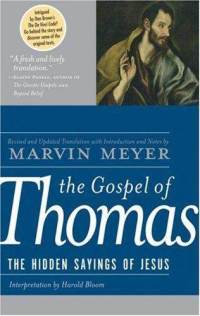
1. [Here, as in the prologue, the author uses the French word hermeneute in a special sense. Because the English equivalent, hermeneute, is so laden with academic connotations, I have avoided it in the gospel itself and chosen the phrase "lives the interpretation" instead of the more literal "Becomes a hermeneute.”—Trans.]
1. And he said, "Whoever discovers the interpretation of these sayings will not taste death.”
1.”he said": The speaker is thought most likely to be Jesus, although he could conceivably be Judas Thomas with an editorial note.
"Whoever discovers the interpretation of these sayings ...”: A similar concern for the salvific possibilities entailed in the study and interpretation of sayings is to be found in Jewish and Greco- Roman sources. Compare Sirach 39:1-3:
But one who devotes one's soul and studies the law of the Most High will seek out the wisdom of all the ancients and will be concerned with prophecies. That person will keep in mind the discourse of reputable men and will go into the subtleties of parables. That person will seek out the hidden things of proverbs and will be occupied with the enigma of parables.
In general, compare also John 8:51-52
The Gospel of Thomas: The Hidden Sayings of Jesus
Marvin Meyer, HarperOne; 2nd edition (October 9, 1992) p. 78
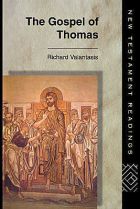
1. And he said, "Whoever finds the correct interpretation of these sayings will never die.” 2
[2] Immortality is said to be the reward of anyone who successfully decodes Thomas's enigmatic sayings. The correct interpretation of the sayings is not the final goal but the means to the goal, the discovery of the Kingdom of Heaven. Thomas's Gospel is an exercise book, a list of riddles for decoding. The secret lies not in the final answers but in the effort to find the answers.
Stevan Davies & Andrew Harvey, Gospel of Thomas Annotated and Explained
Reviews, Skylights Path (2006) p. 2
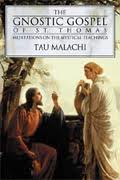
VERSE 1
These are the secret sayings which the living Jesus spoke and which Didymos Judas Thomas wrote down.
And he said, "Whoever finds the interpretation of these sayings will not experience death.”
The Living Yeshua is speaking in secret, within, behind your heart. Christ dwells there within you, and when you go within, Christ will speak the secret teachings to you and lead you in the path of awakening. To listen and hear, you must be silent. You must empty yourself of yourself and let the Christ-Spirit fill you. Dying to yourself, you must be conceived and reborn of the Holy Spirit as the Living Yeshua. Indeed, you must experience the same conception, gestation, and birth as the Living Yeshua so that you also might be his twin, born of the same birth from the Holy Virgin, Mother Wisdom. Only in this way can you receive the Light-transmission from the Master and become a Gnostic yourself.
Everyone is the Living Yeshua. The ordinary person is ignorant of this, but the apostle of God knows it and lives according to the Truth and Light revealed through experience.
Likewise, the kingdom of heaven is here and now, within you and all around you. It is present within everyone. The ordinary person does not have eyes to see it, but the Gnostic perceives it and so dwells in the kingdom of God here and now.
Logos (Word) and Sophia (Wisdom) are to be found within everyone and everything, and so also within you. There, within your secret center, at the core of your being, is the Holy One of Being. The Christ-self is your true self, the self of every self and soul of every soul. All are united with him in the Sacred Unity that is God, the Father-Mother. Through him, the Holy Spirit indwells the whole of Creation. Knowing this, you will not experience death.
This is the truth that is contained in these sayings or verses, the essential reality of which they speak. The secret is openly spoken, but who can listen and hear and so receive it? Written or spoken, the secret remains a secret until it is part of your own experience. The teachings are received only when they are your own experience. Then they become a living initiation-a Light-transmission. This is the aim of the mystic, that he or she should directly experience the Living Yeshua and become as the risen Christ.
What will death mean to that one who experiences Messianic consciousness and dwells in the kingdom of God while in this life? Indeed, death will not mean what it means to the ordinary person, for that one is not so self-identified with mortal name and form, but knows oneself as an immortal Spirit, a bornless and therefore deathless Spirit. Likewise, this person knows that the kingdom of heaven is present within and all around, always-that upon death one's experience of Christ will continue in a more subtle and sublime form, having shed the physical body. With this knowledge, death is no longer death and the adversary has no power over the soul, whether in this world or in the world to come. Such a person is awakened and therefore free, having a continuity of awareness throughout all states of existence. Death will come, as it has for all prophets and saints, but it will just be an appearance of departure-a transition to another mode of existence, no more or less real than falling asleep, only to dream and awaken again. Death, for the Gnostic, is not an end as much as a new beginning. Ultimately, death has no substantial reality, but is merely a natural moment of transition. Knowing this changes everything. Meditate upon it and you will see!
Grace accomplishes this awakening and the transformation that follows it. Nothing one does accomplishes this self-realization. Yet spiritual practice and spiritual living are the conditions that allow Grace to act, without which it is unlikely that the Holy Spirit can work within and through oneself to accomplish the great work. More profoundly, spiritual practice and spiritual living are, themselves, the goal or attainment sought; so that in practicing and living according to the Truth and Light, one naturally awakens and receives the Light-transmission. It is not so much a matter of receiving something that one does not already have as much as it is creating the conditions necessary for the Word (Logos) and Wisdom (Sophia) to pour forth from within oneself. Hence, it is letting the Christ-self that is already present deep within come forward and live this life. Spiritual practice and spiritual living do just that. Practice living as Christ and you will see!
Tau Malachi, The Gnostic Gospel of St. Thomas
Llewellyn Publications (June 8, 2004) pp. 1-3

Saying 1
And he said, "Whoever discovers the interpretation of these sayings will not taste death.”
It is not clear who is speaking here. The narrator is ambiguous about the source: the saying could be Jesus' first saying presenting the goal or end for listening to the secret sayings, or it could be a statement from the repositor Didymos Judas Thomas explaining his goal for recording the sayings. From either of these sources, the saying clearly provides the readers with an expected gain for proceeding to listen: discovery of the interpretation defeats death.
In the narrative world constructed by this text the task of discovering the interpretation dominates as the central and critical activity for the readers. The readers do not aim toward the discovery of Jesus, or even of the community of disciples and followers of Jesus: rather the readers aim to discover the interpretation of the sayings. By its nature, "interpretation" is communal: one person interprets a "text" or a "comment" or something else that comes from some other source, or person, or community. The readers must discover the understanding of these sayings that the community has already articulated: they are not told to interpret, but to find the interpretation. The meaning of these sayings resides in a corporate understanding provided to new readers. The social group formed of those who read and understood their sayings has already provided the interpretative focus, which the readers must uncover, discover, or recover. The readers do not create the meaning, or provide the interpretation, but through their engagement with the sayings, they will discover their already established corporate meaning.
In this narrative world, all the figures (Jesus, Didymos Judas Thomas, the narrator, and the readers) are present, active, and alive in the community. Death does not prevent Jesus from speaking or Didymos Judas Thomas from recording. Similarly, death does not inhibit the reader from interpreting the sayings or from entering the narrative world. The goal articulated in this collection of sayings, however, does not culminate in a literary development, a mere discovery of interpretation: the intent is not to create a fictive world, but to translate the fictive world into "real life," a particular and actual way of living and experiencing. Once the readers have entered that fictive world and translated their lives into it, it becomes the real world, one in which they will no longer taste death.
Just as the emphasis is on discovery rather than on the interpretation of the sayings, so is the result of that discovery an experience, rather than a state. This discovery results in"not tasting death.”It could have been abstractly put: "Whoever discovers the interpretation will achieve immortality," but it was not. Tasting death joins two unjoinable events in graphic detail: eating is a sensible activity, but in death there is no eating. The discovery of the interpretation leads to a significant and alternative way of experiencing sensible life and mortality so that in discovering the interpretation of the sayings, the people become different sorts of people "who do not taste death.” The new understanding of self, encapsulated in this discovery, provides the primary impetus for searching the meaning of these sayings. The next saying addresses that new subjectivity.
Richard Valantasis, The Gospel of Thomas
Routledge; 1 edition (June 27, 1997) pp. 54-5
Oxy 654.3b-5 [Coptic Saying 1]
And he said: "[Whoever discovers the interpretation] of these sayings will not taste [death].”
This saying presents the marketing goal: immortality. The speaker's identity remains ambivalent. Thomas could be presenting the readers with the rationale for his recording of these sayings of Jesus: he does not want the readers to experience death. Or it may be the living Jesus who presents the goal: anyone who understands the sayings of the living Jesus will never experience death. Either way, the ultimate aim remains some kind of life without death.
The deathlessness, however, comes from discovering the interpretation of the sayings. The achievement of the goal depends upon the readers', or, as they might be called now, the seekers', finding the right significance to these sayings. Not to experience death requires discovering their interpretation. The community that was posited in the Prologue, the one consisting of those who listen to the secret sayings and puzzle over their meaning, stands as the arbiter of this state without death, because interpretation involves a community's understanding and tradition of interpretation of the text. Those who enter this interpretative confederation will never die, they will be like the living Jesus speaking in the community, they will perpetuate forever the interpretation of Jesus which Thomas has recorded.”
Richard Valantasis, The Gospel of Thomas
Routledge; 1 edition (June 27, 1997) p. 32
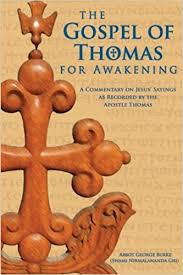
“And he said, Whoever finds the interpretation of these sayings will not experience death. (1)
Ironically, in the Bible the only verse that approximates this is a quotation from Jesus’ enemies: “Thou sayest, If a man keep my saying, he shall never taste of death” (John 8:52).
What is death? Perhaps the best brief definition comes from Vine’s Expository Dictionary, where life is defined as “conscious existence in communion with God,” and death as “conscious existence in separation from God.” Since it is impossible for even an atomic particle to be separated from the infinite, omnipresent God, obviously what is meant is that life is consciousness of union with God and death is loss of that consciousness-the illusion of separation from God. Neither of these have anything to do with the condition-life or death-of the body. Rather, life and death are states of consciousness.
Finding
Jesus said that death will not be experienced by “whoever finds the interpretation of these sayings.” This immediately brings to mind the well-known statement of Jesus: “Seek, and ye shall find” (Matthew 7:7). The Greek text uses the word zeteo, which means to earnestly desire and work toward something-it is practical as well as theoretical, and even has the minor meaning of needing what is sought. The important word, of course, is heurisko, which not only means to find, but has the secondary ideas of both perceiving and possessing the object of the search. So to find the meaning of Jesus’ mystical sayings is to inwardly perceive the reality of their meaning and to attain the state of consciousness on which they are based.…
Instead of “finds” the Patterson and Maeyer translation of these introductory words has “discovers” and Johnson’s has “uncovers.” Both of these bear out the interpretation that Jesus is telling us to gain the states of awareness which are embodied in these sayings.”
Abbot George Burke, The Gospel of Thomas for Awakening
Light of The Spirit Press (March 24, 2015) pp. 4-5
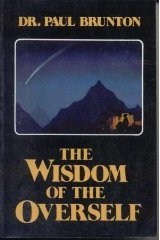
“It is the business of philosophy not to avert death, for it cannot constrain what is so inherent in the very nature of things, but to give us a clearer understanding of the significance of death, a profounder courage with which to face the final adventure and a rarer calmness with which to witness what few can escape witnessing. It reveals death to be but a change of dress, such as we have gone though many times before and will probably go through many times again. It teaches us to get away from the conventional attitude, which is based on ignorance, and to understand that both birth and death are part of the process of educating mankind. When we identify the 'I'-thought, which always arises first, solely with the body-thought, which always arises second, we turn the scale of values upside down and limit the larger factor to the lesser one. Through this initial error we not only strengthen our sorrows and increase our grief, but also fill our hearts with unnecessary fear. But when we become conscious that we 're' conscious and that this is the most direct thing of our experience, we have reached the momentous turning-point of understanding the difference between both thoughts. For the need of making this miracle - and it is nothing less - clear to our own understanding itself puts us on the right path to achieving it.
Is it not better to believe that death is the eternal friend of man and not his bitter enemy? That it comes into his existence from a beneficent source and not from an evil place? That it stays him from wandering into further evil courses? Is it not better to think with Plato that, "the mere preservation and continuance of life is not the most honourable thing for men, as the populace think, but the continuance of the best life whilst we live.” Death reminds man that physical well-being 'lone' can never suffice, as it sets him free when physical burdens prove all too heavy. If it ends his cherished hopes, it also ends his worst diseases and his chronic pains. When the wife of the Chinese mystic Chuang Tzu died, he told one of his disciples: "If someone is tired, we do not pursue him with shouting and bawling. She whom I have lost has laid down to sleep for a while. To break upon her rest with the noise of lamentation would but show that I knew nothing of Nature's sovereign law.”
After 'love,' the word 'death' is the most misunderstood and most misused one in the language. Man makes much alarm when the body ceases its action but never sheds a single tear upon the millions around him who are spiritually already almost dead. His alarm is needless. When he will have answered the riddle of his living self he will have answered the riddle of his dead one. For he will then discover the grand truth that he is infinitely more than he seems. Thoughts and things will pass, but his own essence will never pass away. He is ultimately made of such stuff as reality is made of. When he shall come into consciousness of his own estate, he will not be afraid of reaching the grim terminus of earthly things. The black-coated men may thrust his heap of bones and flesh into a wooden box, but they cannot thrust 'him' therein. No grave has yet been dug that can hold a man; it can only hold his discarded decaying flesh and nothing more. For no knife has yet been made which can dissect him.”
Dr. Paul Brunton, The Wisdom Of The Overself
Samuel Weiser, Inc. (July 1983) p. 187-88
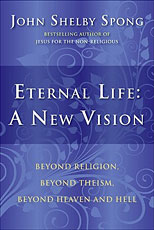
"There is a sense in which this book has been in preparation my entire life. I began wondering about the meaning of mortality when I?rst encountered its reality in the death of a family pet sometime before I was three. I have since lived through a variety of death experiences, as every person does, in the course of my own biblically allotted three score and ten years, a time- span that I exceeded almost a decade ago. I am, however, still counting. I have been drawn, it seems relentlessly as a moth is drawn to a candle, into a study of death and thus into a consideration of that question to which religion seems to devote so much of its energy— namely, whether death might be a doorway into something more. In that study I now discover that I have moved far from those assurances that came to me via some external religious authority, for which I once claimed ultimate truth. First, in my evangelical, fundamentalist Christian upbringing I was taught to believe that the scriptures were in fact the inerrant words of God. At that point in my life, I could sing with no hesitancy a hymn like "Blessed Assurance, Jesus Is Mine," which identified my commitment to Jesus with a "foretaste of glory divine.” The world of expanding knowledge and new learning, however, kept intruding into my evangelical security system, chipping away at my certainty. That understanding of scripture as inerrant ultimately proved to be little more than an untrustworthy leaking ship that had to be abandoned. Religious concepts become fragile indeed when education renders them no longer believable. Try as I might, sometimes with great fervor, remaining on board that biblical premise proved to be impossible. No human words, ancient or modern, I?nally concluded, can ever capture ultimate truth, so I looked for a way out of that disintegrating biblical security system.
My exit from biblical fundamentalism actually came only when I discovered an alternative with equal power to which I could appeal. Its code name was "the authority of the church.” In retrospect I recognize that this was nothing more than a mini-step from one kind of fundamentalism into another, but it felt like a huge step for me at the time. I learned well the jargon of my new idolatry. "Not only did the church write the scriptures," I asserted, "but the church also decided which books would constitute its sacred text.” Those assertions were in fact historically accurate, at least as far as the New Testament was concerned, but the conclusion I drew from those assertions did not really follow. "The church alone," I then stated, "has the authority to interpret the scriptures properly.” My ranks, I thought, were now well protected. Even as I parroted these cliches, however, I must have been aware of the weakness of this argument. Surely I recognized that I needed far more certainty than this if I were going to make these claims believable among those who were not, as I then was, in love with the church. All I had really done was to replace one inadequate authority, the Bible, with another equally inadequate authority, the church. For the church to serve as my?nal authority it had to be invested with some version of divine infallibility, just as the scriptures had previously been invested with divine inerrancy.
The hysteria that always seems to attend such assertions caused me to ask some very different questions. Do people who require certainty in religious matters, and their names appear to be legion, really believe what they are saying? Do they not know that they are just pretending? If they do know they are pretending then why do they act the way they act? When their religious authority- claims are challenged, their typical response is not to enter a rational discussion, but to engage in revealing anger. Anger never rises out of genuine commitment; it is always a product of threatened security. The human need to believe in God and in such ultimate matters as life beyond death, I concluded, must be greater than the human ability to believe these things. When people get to the point where they do not really believe what they are saying, they still seem to believe in believing in what they are saying! They do not even recognize the difference. Nonetheless, I, like so many others, participated in this activity, and it worked for me for a number of years, serving during that time to still my restless search for answers that might keep my doubts in check and to convince me that there was an enduring and eternal truth that I would someday?nd. In retrospect I recognize that this inner need to believe was a factor inspiring my choice of a life path leading me into my career,?rst as a priest and ultimately as a bishop. In that profession, as in few others, I could wrestle openly and publicly with the questions of God and death and what, if anything, lies beyond death; and I could do it within the security of time- tested answers. I do not regret that choice for a minute, but that is because this career has in my particular experience had the power to lead me beyond all human answers and all human boundaries, including the boundary of religion itself, and into an unfettered search for truth and meaning that has no end. That is not everyone's experience with religion; indeed religion does not typically encourage such exploration. It did, however, for me.”
John Selby Spong, Eternal Life: A New Vision
HarperOne (2010) Kobo
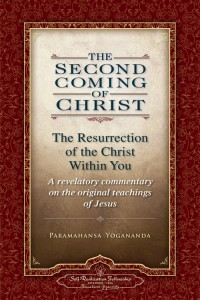
Yeshua said:
Whoever lives the interpretation of these words
will no longer taste death.
(CF. JOHN 5:24, 8:51-52; MATT 13;10-15.)
When Jesus uses the words "keep my saying" ['"Whoever lives the interpretation of these words"'], he distinctly emphasizes that one has daily to live his teachings and methods of contacting the Cosmic Vibration in order to remain continuously in Christ Consciousness, free from the torpor of delusion ("death"). [1] When a man is tossing on buffeting waves, he has no time to see the whole ocean; but if he gets out of the breakers and stands on the shore, he can have a clear overall perspective. Similarly, an ordinary individual who is frantically engaged in coping with the changes affecting his body and environment cannot perceive the Immutable Infinite within him. But when the devotee removes himself from outer turmoil by meditation and tunes his consciousness with the Cosmic Vibration and Christ Consciousness within him, he beholds the Eternal Changelessness free from the changeful illusory visions of life.
[1] In 'Autobiography of a Yogi,' I quoted Jesus, with the following observation: "'If a man keep my saying (remain unbrokenly in the Christ Consciousness), he shall never see death.' In these words Jesus was not referring to immortal life in the physical body—a monotonous confinement one would hardly mete out to a sinner, much less a saint! The illumined man of whom Christ spoke is one who has awakened from the deathly trance of ignorance to Eternal Life.
Paramahansa Yogananda, The Second Coming of Christ (The Resurrection of the Christ within You) Volume II
Self-Realization Fellowship (September 15, 2004) p. 995
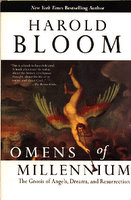
“Gnosis grants you acquaintance with a God unknown to, and remote from, this world ... a more human God than any worshipped since.”
“The experience of Gnosis is a varied phenomenon: your knowing may be
prompted by a moment of utter solitude, or by the presence of another
person. You may be reading or writing, watching an image or a tree,
or gazing only inward. Gnosis, though related both to mysticism and
to wisdom, is quite distinct from either. Mysticism, though it comes
in many kinds, by no means opposes itself to faith; perhaps indeed it
is the most intense form of faith. Wisdom, in the biblical sense, is
allied with the prophetic reception of a God who dominates our world,
which is seen having fallen away his original Creation. Gnosis grants
you acquaintance with a God unknown to, and remote from, this world,
a God in exile from a false creation that, in itself, constituted a
fall. You yourself, in knowing and being known by this alienated God,
come to see that originally your deepest self was no part of the
Creation-Fall, but goes back to an archaic time before time, when
that deepest self was part of a fullness that was God, a more human
God than any worshipped since.”
Harold Bloom, Omens of the Millennium
Riverhead Books (October 1, 1997) pp. 183-84
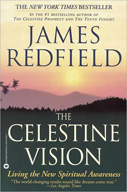
The Enlightenment Solution
“We come now to another key turning point in the formation of the modern worldview. We had turned to science to discover the answers to our largest existential and spiritual questions, but science became consumed with a purely secular and material focus. Who could tell how long it would take to discover the higher meaning of human life?
Clearly, we in the West needed a new banner of meaning, a new mind-set that we could hold on to in the meantime—and more important, one that would occupy our minds. And in this moment, the collective decision seemed to be to turn our attention to the physical world completely, just as science was doing. After all, science was discovering a rich bounty of natural resources, there for the taking. And we could use these resources to improve our economic situation, to make ourselves more comfortable in this secular world of ours. We might have to wait for knowledge about our true spiritual situation, but we could make ourselves more materially secure while we were waiting. Our new philosophy, albeit temporary, was a furtherance of human progress, a commitment to bettering our lives and the lives of our children.
At the very least, this new philosophy eased our minds. The sheer weight of the work to be done kept us busy, just as it kept our attention off the fact that the mystery of death, and thus of life itself, still loomed large and unexplained. Someday, at the end of our earthly existence, we would have to face the spiritual realities, whatever they were. In the meantime, however, we narrowed our focus to the problems of everyday material existence and tried to make progress itself, personal and collective, the sole reason for our short lives. And that became our psychological stance at the beginning of the modern age.
We only have to take a quick look around at the end of the twentieth century to see the grand results of this narrow focus on material progress. In a few centuries, we explored the world, founded nations, and created a huge global system of commerce. In addition, our science has conquered diseases, developed awesome forms of communication, and sent men to the moon.
Yet all this has been accomplished at great cost. Citing progress, we have exploited the natural environment almost to the level of destruction. And personally, we can see that at a certain point our focus on the economic aspects of life became an obsession used to push away the anxiety of uncertainty. We had made secular life and progress, ruled by our logic, the sole reality we would allow into our minds.
Western culture finally began to awaken from this preoccupation in the mid-twentieth century. We stopped and looked around and began to understand where we were in history. Ernest Becker won a Pulitzer Prize for his book 'The Denial of Death'[5] because he clearly showed what the modern world had done to itself psychologically. We had narrowed our focus to material economics and for so long refused to entertain the idea of a deeper spiritual experience because we didn't want to be reminded of the great mystery that is this life.
i believe that's why old people tended to be abandoned in nursing homes. Looking at them reminded us of what we had pushed out of our consciousness. Our need to hide from the mystery that terrified us is also why a belief in a universe where synchronicity and other intuitive abilities are real has felt so foreign to our common sense. Our fear explains why, for so many years, those individuals who were experiencing mysterious synchronicity, intuition, prophetic dreams, ESP, near-death experiences, angelic contact, and all the rest—experiences that have always occurred in human existence, and even continued in the modern age—were met with so much skepticism. Talking about these experiences or even admitting that they were possible threatened our assumption that the secular world was all there was.”
The Celestine Vision: 'Understanding Where We Are'
James Redfield, Bantam Australia & New Zealand, Chapter 3, p.41-43
Note: [5] E. Becker, 'The Denial of Death' (New York: Free Press, 1973).
"There should be no fear of death but on the contrary should be welcomed"
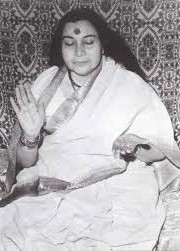
THE MOTHER: Messiah-Paraclete-Ruh
Kyiv, Ukraine—August 6, 1992
“For my mother [...], but my true [mother] gave me life.” The true mother may be the Holy Spirit, because the Hebrew word for Spirit (ruah) is feminine... An explicit proclamation of the Spirit as the mother of Jesus is to be found in the Gospel of Hebrew (frags. 2 and 3). This means that in the third part the true mother of Jesus, who gave him life, is the Holy Spirit.” (Pokorny 2011, 144)
“In a human form you decrease your age as your birthday comes. But with this you increase your age. And you are proud that you are growing. In the human level you feel unhappy that you are growing; here you feel proud that you are growing.”
THE MOTHER: Messiah-Paraclete-Ruh
The Way Of Our Spiritual Growth
London, U.K.—April 22, 1984
"And when you die what happens to you is a very simple thing; that you feel liberated, absolutely, and then you feel your freedom, completely, and you can decide what to do. It's all under your own guidance, your own desires, everything works out.
You don't feel that you have come out of your body and this is what [I] should tell you: that there should be no fear of death but on the contrary should be welcomed because you will feel much more liberated, much more at ease.”
THE MOTHER: Messiah-Paraclete-Ruh
To Achieve Complete Freedom, Cabella, Italy—May 7, 1995
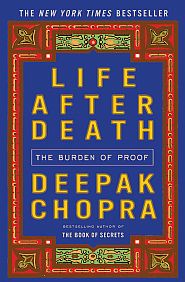
Death ended nothing; it opened up limitless adventures
"Memoir: The Life Beyond
While writing this book on the afterlife, I kept being drawn back to stories that I'd heard in India as a child. Parables are a powerful way to teach children, and many of the ones told to me have lasted all my life. So I decided to weave the book around tales of the kind I heard at home, around the temples, and at school, hoping that the reader would be enticed by a world where heroes battle darkness in order to emerge into the light.
In this case the hero is a woman, Savitri, and the enemy she must defeat is Yama, the lord of death. Yama shows up in her front yard one day, waiting to take away her husband the moment he returns from his work as a woodcutter. Savitri is terrified. What strategy could possibly turn Death away from his inexorable mission?
I had no trouble imagining these characters. I was frightened for Savitri and anxious to find out how her battle of wits with Death turned out. Their world flowed easily into my own, because the India of my childhood was not that far removed from ancient India. I want to take a moment to convey what death and the world beyond meant back then. It may seem like a very esoteric place. If so, you can come back to it after reading the main body of the book. However mysterious and exotic, here is where I began.
What was most magical in my childhood was transformation. Death itself was seen as a brief stopping point on an endless soul journey that could turn a peasant into a king and vice versa. With the possibility of infinite lifetimes extending forward and backward, a soul could experience hundreds of heavens and hells. Death ended nothing; it opened up limitless adventures. But at a deeper level, it's typically Indian not to crave permanence. A drop of water becomes vapor, which is invisible, yet vapor materializes into billowing clouds, and from clouds rain falls back to earth, forming river torrents and eventually merging into the sea. Has the drop of water died along the way? No, it undergoes a new expression at each stage. Likewise, the idea that I have a fixed body locked in space and time is a mirage. Any drop of water inside my body could have been ocean, cloud, river, or spring the day before. I remind myself of this fact when the bonds of daily life squeeze too tight.
In the West the hereafter has been viewed as a place akin to the material world. Heaven, hell, and purgatory lie in some distant region beyond the sky or under the earth. In the India of my childhood the hereafter wasn't a place at all, but a state of awareness.
The cosmos that you and I are experiencing right now, with trees, plants, people, houses, cars, stars, and galaxies, is just consciousness expressing itself at one particular frequency. Elsewhere in spacetime, different planes exist simultaneously. If I had asked my grandmother where heaven was, she would have pointed to the house we lived in, not only because it was full of love, but because it made sense to her that many worlds could comfortably inhabit the same place. By analogy, if you are listening to a concert orchestra, there are a hundred instruments playing, each occupying the same place in space and time. You can listen to the symphony as a whole or, if you wish, put your attention on a specific instrument. You can even separate out the individual notes played by that instrument. The presence of one frequency does not displace any of the others.
I didn't know it as a child, but when I walked around the crowded Delhi market where more humanity was packed into one bazaar than was possible to imagine, the world I couldn't see was even more crowded. The air that I breathed contained voices, car noises, bird songs, radio waves, X-rays, cosmic rays, and an almost infinite array of subatomic particles. Endless realities lay all around me.”
Deepak Chopra, Life After Death: The Burden of Proof
Harmony; 1 edition (October 17, 2006), pages 1-2
Great Departure
Online Items : January 1997
Exiting life, so frequently fraught with fear and trembling, can be an exalted experience the Editor
“General George Patton of World War II fame, no stranger to personal reincarnational remembrances (he claimed to recall previous battlefield experiences as Napoleon), once observed," For Hindus death is the most exalted experience of life.”This idea is naturally hard for non-Hindus to grasp — all the more so for atheists facing Eternal Oblivion and those of Abrahamic faiths which define death as a punishment for man's sinful disobedience. To them, death is the ultimate sign of man's spiritual failure, a belief which arouses instincts of denial and injustice. One may feel penitent and guilty, not to mention uncertain about the destination ahead.
No such thoughts attend the dying days of a Hindu. Of course, there is much sadness surrounding the passing of friends and family, but that is honest acknowledgement of our loving attachments. Inside we know death is OK, natural, that the soul, even if it was less than perfect in this life, is continuing its appointed journey across life's oceanic phenomena toward Liberation and will, in time and without fail, reach the other shore. The Hindu's presumption of numerous births mitigates the tragedy of death, whether the passage is his own or another's. So, Hindus call death by lofty names — Maha Samadhi, "Great Superconscious State" and Maha Prasthana, "Great Departure.” To be near an awakened soul at the time he or she gives up the body is considered among the most blessed of opportunities. While ordinary people are remembered on their day of birth, Hindus honor enlightened souls on the day of their departure, translated in English as "liberation day.” ”
Himalayan Academy, 1998
Web. Goggle cache July 15, 2011 (www.hinduismtoday.kauai.hi.us/welcome.html)
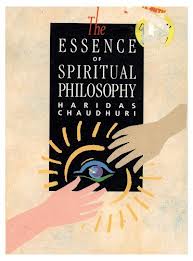
“Those who have spiritual enlightenment tell us that the basic cause of fear of death is our metaphysical or spiritual ignorance, which lies in the identification of the spirit with the body. As long as we are not aware of our true spiritual essence, of the reality of the spirit or the true self within us, it is natural that we are subjected to this fear of death.. The body is subject to the laws of nature. It is born, it grows, it attains maturity, it declines and it perishes. When we identify with this body and we have no understanding of our spiritual essence, naturally we feel that decline and eventual disintegration of the body mean our decline and destruction. So in all religions, the great spiritual geniuses have declared unequivocally that the more we know of our true spiritual essence of our being, the more we overcome the fear of death. We take a deeper perspective. We realize destruction of the body does not involve destruction of our spiritual nature, which is immortal and imperishable in character. Therefore, it is evident that the best way to conquer and overcome this fear of death is to sharpen our spiritual understanding and experience...
As the great philosopher Spinoza said, the essence of spiritual wisdom is to be able to behold life under the aspect of eternity.”
Dr. Haridas Chaudhuri, The Essence of Spiritual Philosophy
Thorsons Publishing Group, UK, 1990, p. 133-6.
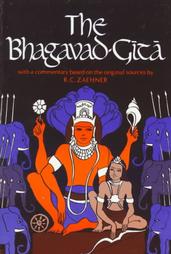
“... 'to become the very self of every being' (BG. 5.7) does not mean the loss of a personal relationship with God, and probably with other liberated beings as well. This is in line with at least one type of Upanishadic thought typified in the dialogue between Indra and Prajapati in Chandogya Upanishad 8. The relevant passage is 8.12, 1- 3:
Bountiful One! For sure this body is mortal, held in the grip of death. Yet it is the dwelling-place of the immortal, incorporeal self. And this self, while still in the body, is held in the grip of pleasure and pain; and so long as it remains in the body there is no means of ridding it of pleasure and pain. But once it is freed from the body, pleasure and pain cannot as so much touch it.
The wind has no body. Clouds, thunder, and lightning — these too have no body. So, just as these arise from the broad expanse of space up there and plunge into the highest light, revealing themselves each in their own form, so too does this deep serenity arise out of this body and plunge into the highest light, revealing itself in its own form. Such a one is a superman (uttara purusa); and there he roves around, laughing, playing, taking his pleasure with women, chariots, or friends and remembering no more that excrescence which was his body...
Liberation is no longer the isolation of the classical Samkhya-Yoga: rather it is the end of what Christians mystics call as via purgativa, the way of the vishuddh'tma, the 'purified self' (5.7: cf. 5.11:6.12.) It is the beginning of the personal encounter of the integrated and liberated self with God.”
R.C. Zaehner, Bhagavad Gita
Oxford University Press, 1969, p. 234.
“But you know that you have eternal life. You can never die.”

"Believers experience the personal presence of the Paraclete in various ways. The word itself defies translation, for it bears multiple meanings, including advocate, intercessor, comforter, and proclaimer. The Greek word parakletos refers to one who is 'called (kletos) alongside (para)'—and the Paraclete is called alongside believers in a variety of capacities.” (Gench 2009, p. 103)
“Birth, play, marriage, children, old age — life is finished. That is not living! Life is much deeper and more wonderful... When you know God there is no more sorrow.
All those you loved and lost in death are with you again in Eternal Life. The souls of those loved ones who departed before will come to welcome: fathers, mothers, wives, children, friends. Hundreds and thousands and millions of them! From hundreds and thousands and millions of past lives and rebirths! From hundreds and thousands and millions of millenniums ago! How many wives we must have had in previous lives and how many husbands God alone knows.”
THE MOTHER: Messiah-Paraclete-Ruh-Devi London, U.K.—June 21, 1981
"But you know that you have eternal life. You can never die. Death is not this body disappearing. Death is where you are absolutely without any control of your soul. Once you are a Realized soul you have all the control, all the Powers to take your soul wherever you feel like — to be born if you like, if you don't want you will not be born. To be born with the people, in the families, in the communities, wherever you like.”
THE MOTHER: Messiah-Paraclete-Ruh-Devi
To Achieve Complete Freedom, Cabella, Italy—May 7, 1995
"An astral person meets a multitude of relatives, fathers, mothers, wives, husbands, children, and friends, acquired during different incarnations on earth, as they appear from time to time in various parts of the astral cosmos. He is therefore at a loss to understand whom to love especially; he learns in this way to give divine love and equal love to all beings, as children and individualized expressions of God.”
Paramahansa Yogananda, Autobiography of a Yogi
Self-Realization Fellowship (1974) p. 415.
“The resurrection of the body. Just as clear, however, is the real, indeed materialistic, significance that lies in the Christian understanding of the resurrection. A dualistic understanding of what is to be human, which assumes an essential difference between the spiritual and the material-bodily sides of human existence, necessarily leads to the idea of the immortality of the soul. According to this view, imperishableness belongs to spiritual nature alone. The Christian hope, however, does not aim at the immortality of the soul but at the resurrection of the body... This hope was expressed by Vladimir Solovyov: What help would the highest and greatest moral victory be for man, if the enemy, "death," which lurks in the ultimate depth of man's physical, somatic, material sphere, were not overcome?
The goal of redemption is not separation of the spirit from the body; it is rather the new human in the entirety of the body, soul, and mind...
Although it is not an uncontroversial point, there is in the New Testament, in the observation of many, a progression of salvation in history. Indeed, there is a progress of both the individual human being and of mankind as a whole, what might be thought of under some terms and conditions as a potential for the progressive perfection of the human being. This characteristic stands out already in the proclamation of Jesus. He promises his disciples: "Then the righteous will shine like the sun in the kingdom of their Father. He who has ears let him hear.” (Matthew 14:12)... In connection with the breakthrough of the idea of evolution through Darwin in the areas of biology, zoology, and anthropology, the tendency asserted itself — above all in 19th century American theology — of interpreting the Christian history of salvation in terms of the evolution and expectation of future human perfection in the form of reaching even higher charismatic levels and even higher means of spiritual knowledge and communication.”
The New Encyclopaedia Britannica (1992)
“Death does not exist for you — It is finished... your spirit is free.”

"Rudolf Bultmann reinterprets eschatology along existential lines. He calls the coming of the Redeemer an "eschatological event," "the turning-point of the ages," from such verses as 3:19; 9:39... The sayings about a future coming of Jesus do not refer to a "coming again" but merely to his coming. Here are to be found the real foundations in the words of Jesus about his coming. But this coming is no second eschatological event but the consummation and fruition of that which is being brought to fulfillment: the coming of Jesus in the Paraclete. The resurrection inaugurates the parousia. Apocalyptic thought later separated these two events and reinterpreted the parousia in terms of Jewish apocalyptic.” Ladd 1993, 337
“So this happening that we are afraid of death is absolutely absurd for Sahaja Yogis. What is there to think even about your death. There is nothing like death for you because you have got eternal life.”
THE MOTHER: Messiah-Paraclete-Ruh
“So you must know your position as eternal beings — what is your work; what is your idea; what you have to do. So one has to get rid of this idea of death because death does not exist for you; it is finished... your spirit is free.”
THE MOTHER: Messiah-Paraclete-Ruh
To Achieve Complete Freedom, Cabella, Italy—May 7, 1995
“Religions are the expressions and experiments of Realized souls — the seers. They also talk about the inner being, second birth, and about Self-Realization. In the beginning, in India, they tried to take the attention inside by introducing symbols that they saw in this unconscious Universal Being within. This gave rise to pantheism and the aspirant's attention got stuck to symbols and to rituals which killed the main objective. So the other type of experiments of talking only about the abstract (Nirakar) gave rise to many other religions which ended as dogmas or "isms.”The reason is obvious; talking about the flower or the honey cannot take you to the honey but can only create dogmatic "ism" in the mind. You have to be a bee to reach there, that is, you have to be reborn. This has to happen within to take you inside. It is too great an achievement and unbelievable, but I feel the search of ages has brought great results. The mind with a child-like innocence achieves very quick results. Whatever may be the loads of the mind, if the longing is honest and earnest, sooner or later the aspirant can get Self-Realization.
After reaching this state the vibrations start emitting from the extremities. These are described by Adi Sankaracarya in his work Ananda Lahari. The vibrations are the waves of Divine Love that can fill also other persons' inner being and give them the same experience of Self-Realization. The physical manifestations are as follows: The pupils of the eyes become dilated. The face becomes radiant, the body becomes light, all tension is completely removed. The rising of the Kundalini can be seen by others and felt by the aspirant. First the throbbing is clearly felt at Sahasrara and when it stops, complete silence is felt within and in all awareness. The flow of Grace is felt coming down, cooling the whole being. As the attention moves to the subtle, gross attachments drop out. A person gradually loses identification with falsehood and artificiality. In matter, he sees beauty and not its possession value. In Knowledge, he identifies himself with Truth and is not afraid to profess, nor does he indulge in the double standards of life. His flow of Love becomes spontaneous, generous, without any tinge of attachment, possession or return. The person becomes ageless — a hollow personality. Now let us see what happens inside.
The attention of the consciousness moves to the inner being. As the thread of a necklace is passing through every bead of the necklace, the Inner Consciousness is also passing through every human being. As soon as our attention moves to our Inner Consciousness we can move on to everybody's Kundalini. One starts feeling the Kundalini, its nature, its position in other persons. Collective Consciousness is thus established. Now you become a universal being. After some days you cannot say who is the other person. The Power of Love is so great and dynamic that with the movement of your fingers you can move the Kundalini of thousands. It becomes child's play.
This is how en masse evolution of human beings will take place. These are signs of the advent of the Golden Age of Truth (Satya Yuga). Let us forget whatever hardships we have suffered in our search in the past. It does not matter if some could not find it before. You have to open your mind and understand that though the discovery is unprecedented, it does not make any seeker or predecessor small. If some experiments are made it does not matter if, ultimately, we have found out the way. It is a collective achievement. Perhaps in the chaos of Kali Yuga it was to happen and many of us who have been earnestly searching in many lives, are reborn to have their promises by the Divine. Maybe we were our own predecessors.
On the Tree of Life there might have been very few flowers but now the Blossom Time has come. Their fragrance of longing has collectively materialized the manifestation of Sahaja Yoga. Many are going to jump into the Realm of Thoughtless Awareness where you get introduced to your Self and start identifying with your Universal Nature. Those who deserve will get the Throne of their Inner Being which rules the Skies of Peace, and the Oceans of Divine Love, and Supreme Knowledge within which is limitless.”
THE MOTHER: Messiah-Paraclete-Ruh-Devi

“Many beings remain for thousands of years in the casual cosmos. By deeper ecstasies the freed soul then withdraws itself from the little casual body and puts on the vastness of the casual cosmos. All the separate eddies of ideas, particularised waves of power, love, will, joy, peace, intuition, calmness, self-control, and concentration melt into the overjoyous Sea of Bliss. No longer does the soul have to experience its joy as an individualized wave of consciousness, but is merged in the One Cosmic Ocean, with all its waves — eternal laughter, thrills, throbs...
"When a soul finally gets out of the three jars of bodiily delusions," Master continued, "it becomes one with the Infinite without any loss of individuality. Christ had won this final freedom even before he was born as Jesus. In three stages of his past, symbolized in his earth-life as the three days of his experience of death and resurrection, he had attained full power to arise in the Spirit. The undeveloped man must undergo countless earthly and astral and casual incarnations in order to emerge from his three bodies. A master who achieves this final freedom may elect to return to earth as a prophet to bring other human beings back to God, or like myself he may chose to reside in the astral cosmos. There a saviour assumes some of the burden of the inhabitants karma and thus help them to terminate their cycle of reincarnation in the astral cosmos and go on permanently to the casual spheres. Or a freed soul may enter the casual world to aid its beings to shorten their span in the casual body and thus obtain the Absolute Freedom.” ”
Paramahansa Yogananda, Autobiography of a Yogi
Self-Realization Fellowship (1974) p. 420-21.
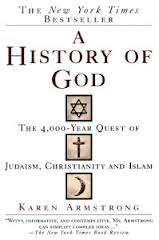
“As we approach the end of the second millennium, it seems likely that the world we know is passing away. For decades we have lived with the knowledge that we have created weapons that could wipe out human life on the planet. The Cold War may have ended, but the new world order seems no less frightening than the old. We are facing the possibility of ecological disaster. The AIDS virus threatens to bring a plague of unimaginable proportions. within two or three generations, the population will become too great for the planet to support. Thousands are dying of famine and drought. Generations before our own have felt that the end of the world is nigh, yet it does not seem that we are facing a future that is unimaginable. How will the idea of God survive in the years to come? For 4000 years it has constantly adapted to meet the demands of the present, but in our century, more and more people have found that it no longer works for them, and when religious ideas cease to be effective they fade away. Maybe God really is an idea of the past. The American scholar Peter Berger notes that we often have a double standard when we compare the past with our own time. Where the past is analyzed and made relative, the present is rendered immune to this process and our current position becomes an absolute: thus"The New Testament writers are seen as afflicted with a false sense of consciousness rooted in their time, but the analyst takes the consciousness of his time as an unmixed intellectual blessing.”Secularists of the nineteenth and early twentieth centuries saw atheism as the irreversible condition of humanity in the scientific age.
There is much to support this view. In Europe, the churches are emptying; atheism is no longer the painfully acquired ideology of a few intellectual pioneers but a prevailing mood. In the past it was always produced by a particular idea of God, but now it seems to have lost its inbuilt relationship to theism and becomes an automatic response to the experience of living in a secularized society. Like the crowd of amused people surrounding Nietzsche's madman, many are unmoved by the prospect of life without God. Others find his absence a positive relief. Those of us who have had a difficult time with religion in the past find it liberating to be rid of the God who terrorized our childhood. It is wonderful not to have to cower before a vengeful deity, who threatens us with eternal damnation if we do not abide by his rules. We have a new intellectual freedom and can boldly follow up our own ideas without pussyfooting around difficult articles of faith, feeling all the time a sinking loss of integrity. We imagine that the hideous deity we have experienced is the authentic God of Jews, Christians and Muslims and do not always realize that it is merely an unfortunate aberration.”
Karen Armstrong, A History of God
Ballantine Books, 1993, p. 377-78.

The invisible Spirit (Atma, Atman) is eternal, and the visible physical body, is transitory. The reality of these two is indeed certainly seen by the seers of truth. (2.16)
The Spirit by whom this entire universe is pervaded is indestructible. No one can destroy the imperishable Spirit. (2.17)
The physical bodies of the eternal, immutable, and incomprehensible Spirit are perishable. (2.18)
The one who thinks that the Spirit is a slayer, and the one who thinks the Spirit is slain, both are ignorant. Because the Spirit neither slays nor is slain. (2.19)
The Spirit is neither born nor does it die at any time. It does not come into being, or cease to exist. It is unborn, eternal, permanent, and primeval. The Spirit is not destroyed when the body is destroyed. (2.20)
Just as a person puts on new garments after discarding the old ones; similarly, the living entity or the individual soul acquires new bodies after casting away the old bodies. (2.22)
Weapons do not cut this Spirit, fire does not burn it, water does not make it wet, and the wind does not make it dry. The Spirit cannot be cut, burned, wetted, or dried. It is eternal, all pervading, unchanging, immovable, and primeval. (2.23-24)
The Spirit is said to be unexplainable, incomprehensible, and unchanging. Knowing the Spirit as such you should not grieve. (2.25)
The Bhagavad-Gita
“Many people ask Me questions: ‘What about death?’”

"Scholars divide over the interpretation of the role of the Paraclete declaring "The things that are yet to come" (ta erchomena). Some claim that it is fully eschatological, that is, the Paraclete instructs the disciples concerning the end of time (e.g., Bernard, Commentary 2:511; Windisch, Spirit-Paraclete 12; Johnson, Spirit-Paraclete 38-39; Betz, Der Paraklet 191-192). For others it is an indication of the apocalyptic nature of primitive Christian prophecy (e.g. Bauer, Johannesevangelium 198-199; Bernard, Commentary 2:511; Lindars, Gospel 505)... The Paraclete points the disciples forward to the many things that will flow from the event of Jesus, from 'the hour' (and including 'the hour') until the traditional end of time.” (Harrington 1998, 447)
“Many people ask Me questions: "What about death?”.. But you know that you have eternal life. You can never die. Death is not this body disappearing. Death is where you are absolutely without any control of your soul. Once you are a Realized soul you have all the control, all the Powers to take your soul wherever you feel like — to be born if you like, if you don't want you will not be born. To be born with the people, in the families, in the communities, wherever you like. There are many great souls I know that have taken birth daringly into societies which are very much, I should say, deteriorating and are in danger of getting destroyed because of stupidity they do.
So this happening that we are afraid of death is absolutely absurd for Sahaja Yogis. What is there to think even about your death? There is nothing like death for you because you have got eternal life. It's not that you continue with the same body. You may go on changing your dress but you are living, you are aware. And you know even if this body is not there you will be there, all the time. I will agree for Sahaja Yoga, for anything that is to be done in the name of Reality. So you must know your position as eternal beings, what is your work, what is your idea, what you have to do. So one has to get rid of this idea of death because death does not exist for you. It is finished... your spirit is free.
And when you die what happens to you is a very simple thing; that you feel liberated, absolutely, and then you feel your freedom completely, and you can decide what to do. It's all under your own guidance, your own desires, everything works out. You don't feel that you have come out of your body and this is what I should tell you: That there should be no fear of death but on the contrary, should be welcomed because you will feel much more liberated, much more at ease...
This body is finished is a very good idea. So troublesome it is. The most sticky thing we have is this body... So to forget about death is the easiest thing to do.”
THE MOTHER: Messiah-Paraclete-Ruh-Devi
To Achieve Complete Freedom, May 7, 1995—Cabella, Italy
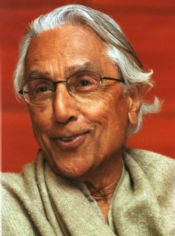
Prof. Raimon Pannikar “The Upanishads do not teach a death experience, but an experience of life. Ultimately there is no experience of death and the death experiment is, in the last analysis, unreal because the "subject" who died was not real. The supreme Upanishadic experience is discovered precisely by realizing that the experiment of death is only a psychological experience, made by the immortal atman.
The Vedic experience is one of liberation, of freedom from everything. It thus includes freedom or liberation from time. What both fascinates and haunts Upanishadic Man is not anything that comes after, but that which has no after. As long as we are entrammeled in the net of mere temporal existence, we are in the clutches of death, even if we postpone death by a sequence of successive existences. An afterlife is as inauthentic a life as a prelife. The piercing of the skin of time as with a needle, without either hurting or destroying the spatiotemporal epidermis and yet transcending it, is what liberation is all about...
Now, the end is not death and dissolution, nor is it an indefinite and horizontal repetition of one and the same circle. One of the discoveries of the Vedic wisdom is precisely that, whereas time is circular, Man is not, so that for him it is not a question of beginning all over again. On the contrary, it is imperative that he escape the enclosure of the circle. The circularity of time indicates its ontic finitude, whereas Man is infinite. Man has to break the circularity of time in order to reach the ontological fullness of his being. To enter into this other nontemporal, but no less real, sphere is to attain realization, to reach liberation from the encirclement of time and freedom from temporal chains. It is a truly new life, not in the sense of a"recycled"life but in the sense of a new type, a new kind of life, indeed, the only real and authentic life.”
Professor Raimundo Panikkar, The Vedic Experience
http://www.cybrlink.com/vedtoc.htm
“Modern Man wonders about death and weaves innumerable theories about it; he seems to be sure about only one thing: its factual reality and thus its inevitability. In spite of startling news produced now and then by the scientific shamans of our age, contemporary Man seems at a loss when he is confronted with one of the most ancient myths of mankind: the possibility of avoiding death. Because death is seen to be inevitable, modern society tends to wipe out from the memory of the living all dealings with the dying and the dead. The fundamental Vedic attitude is almost the opposite: it does not reckon with death's inevitability and it does not try to smuggle death away from everyday life.
According to this vision, which is common to other cultures as well, death is not inevitable; it is only accidental. You die if your life is snatched away before you reach maturity, or before you marry, or if something unexpected happens to you which prevents you from achieving what you yourself or society was expecting of your life. Death is limited to this rupture, this misfortune, this accident. Thus it is always an unnatural event, and it is always akala mrtyu, untimely death.
On the other hand the old Man, "The Man of long life," as the Vedas call him, the one who has lived his life, who has fulfilled his life span, his ayus, does not die; he does not experience a break and, thus, a trauma; he has simply consumed the torch and exhausted the fuel. The flame of his life goes on and it burns in his sons, his daughters, his children's children, his friends, his work, and in his ideas which are scattered to the four winds. Even his body, with its own energy, has already enriched the earth on which he has walked, the rivers in which he has bathed, and the living beings with whom he has been in communication and communion. Only the last gifts of his body and breath still remain to be given away. The old Man does not die; he simply finishes his commerce with life and achieves the transmission of all that he himself has received, as the Upanishads describe. He cancels the constitutive rna, the debt of gratitude for the gift of his existence. The natural extinction of one particular carrier of life or the completion of one's own life is not death.
Indeed, not every Man who is old in years reaches long life, maturity, and thus immortality. It is not a question of mere number of years but of growth, for which the passing of years — the hundred autumns — is certainly required but of which it is not the only condition. Time, in fact, is more than its measurement by the passing of days and seasons; it is the qualitative coefficient of human growth itself. To disentangle the immortal from the mortal, to liberate himself from the claws of death, is the task of every Man. On the one hand there is the asu or life-principle, the power of life or vital strength, which is assimilated in some traditions to the ahamkara, the selfish ego of unfulfilled desires and unachieved projects. This ego is not pure, later periods will say, inasmuch as it consists of unburnt karmas; it is this ego that is afraid of death, because it must certainly die. There is, on the other hand, the personal atman, that spark of the paramatman, which does not die. Jiva, in spite of the variety of meanings given by different schools, could also be another word for immortal Man.”
Professor Raimundo Panikkar, The Vedic Experience
http://www.cybrlink.com/vedtoc.htm
“For Hindus, death is nobly referred to as mahaprasthana, "the great journey.” When the lessons of this life have been learned and karmas reach a point of intensity, the soul leaves the physical body, which then returns its elements to the earth. The awareness, will, memory and intelligence which we think of as ourselves continue to exist in the soul body. Death is a most natural experience, not to be feared. It is a quick transition from the physical world to the astral plane, like walking through a door, leaving one room and entering another. Knowing this, we approach death as a sadhana, as a spiritual opportunity, bringing a level of detachment which is difficult to achieve in the tumult of life and an urgency to strive more than ever in our search for the Divine Self. To be near a realized soul at the time he or she gives up the body yields blessings surpassing those of a thousand and eight visits to holy persons at other times. The Vedas explain, "As a caterpillar coming to the end of a blade of grass draws itself together in taking the next step, so does the soul in the process of transition strike down this body and dispel its ignorance.” Aum Namah Sivaya”
Satguru Sivaya Subramuniyaswami
(Himalayan Academy, 1998, www.hinduismtoday.kauai.hi.us/welcome.html)
“The Reality is so beautiful. It is just lying ahead of us.”

"The standards by which the world rendered its judgment on Jesus are so embedded in its way of seeing things that it cannot on its own free itself of them and reverse its opinion. The inward, convicting work of the Spirit — the word from beyond the world — is required if the world is to come to recognize the vindicated Jesus. The divine Paraclete, and no lessor agency, must show the world how wrong it was about him who was in the right. From that revolutionary, divinely imparted insight, a new understanding of righteousness and an alternative ordering of human society can develop.” (Stevick 2011, 254)
“After all we are all human beings created by one God, on one Earth, in complete unison. We are part and parcel of that One Primordial Being. We are cells in the body of that Great Being.
And we are fragmented. That's why once you know that you are the part of that, your fragmentation goes away and you become that. You become that. Then all your sense of security is established, all your self-esteem is established, all your glory comes to you, and you start distributing it...
You are not to be disappointed my child. The Reality is so beautiful. It is just lying ahead of us. Don't be worried. Everything is going to be alright... Death does not exist. There is nothing like death. We are made of five cocoons. One of them is the cocoon of food called as Annamaikosh. That only drops out, and also a little bit of water within us also drops out. The rest of it remains.
Nothing! I wish you could die like that it is just changing of clothes you know. Like when I came from Birmingham I just changed my clothes in the hotel, and came here to be refreshed, to be new. Just like that as our clothes become dirty we change them, or become old we just change it — that's all. Death does not exist. It's a myth.”
THE MOTHER: Messiah-Paraclete-Ruh-Devi
What are we inside, Birmingham, U.K.—August 9, 1980
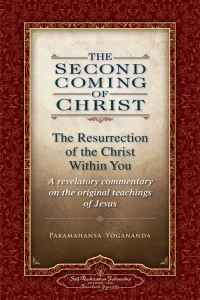
Hereafter Ye Shall See Heaven Open
“Genesis in the Bible tells us of the universal becomings. In brief: "'In the beginning God created the heaven and the earth. And the earth was without form, and void' (pure consciousness, the creative thoughts of God that are the ideational causes of all beginnings)...And God said, 'Let there be light': and there was light' (the basic building block of manifested forms—the structural essence of God's triune creation: the vibratory light of thoughtrons, lifetrons, atoms)....And God said, 'Let there be a firmament in the midst of the waters' (creative elements), And let it divide the waters from the waters' (the subtle causal and astral elements from the gross physical elements). And God made the firmament' (fine vibratory etheric space providing a background for gross manifestation and serving as a curtain to divide the physical universe from the overlying astral realm), And divided the waters which were under the firmament from the waters which were above the firmament....And God called the firmament Heaven' (the astral world secreted behind etheric space)....And God said, 'Let the waters' (gross elements) 'under the heaven be gathered together into one place, and let the dry land appear' (materialization of the gross elements into a physical universe)'" (Genesis 1:1-9).
What and where is heaven?
Heaven may be said to consist, overall, of three regions: where the Heavenly Father lives in vibrationless Infinity; where Christ Intelligence reigns—omnipresent in but transcendentally untouched by vibratory creation—and in which the angels and highest evolved saints reside; and the vibratory spheres of the ideational causal world and lifetronic astral world. These heavenly realms, vibratory and transcendent, are only figuratively"Above"The gross vibrations of earth "below": They are in fact superimposed one on the other, with the finer screened from the denser manifestation through the medium and intervention of the "firmament," vibratory etheric space, hiding the astral from the physical manifestation, the causal from the astral, and the transcendent Christ and Cosmic Consciousness from the causal. Without this integration—producing a physical instrumentality empowered by astral life, guided by individualized intelligence, all arising from consciousness—there could be no meaningful manifestation.
So this earth and its beings seemingly floating in limitless space as the result of blind forces is not happenstance at all; it is highly organized.
The physical cosmos is diminutive in relation to the enormously larger and grander astral cosmos, as is the astral universe in relation to the causal—both the astral and causal heavens are permeated with the Christ Consciousness; and interlacing all is the Cosmic Consciousness of God, extending into the boundless infinity of blissful Spirit.
No one can measure Eternity. Man has yet to plumb the immensity of even this limited physical cosmos; there are untold billions of stars in the heavens that still have not been seen. The Lord has Infinitude as His space in which he dangles the intricately designed baubles of these physical, astral, and causal worlds, intriguingly reflecting as well as mysteriously hiding facets of His Immutable Being.
Different cultures and sects conceive of heaven according to their racial, social, and environmental habits of thought: a happy hunting ground; a glorious realm of endless pleasures; a kingdom with streets of gold and winged angels making celestial music on harps; ' nirvana' in which consciousness is extinguished in an everlasting peace.
Jesus said: "In my Father's house are many mansions" (John 14:2). These "many mansions"Include comprehensively the Infinitude of Spirit, the Christ Consciousness sphere, and the diverse higher and lower planes of the causal and astral realms. In general, however, the designation of heaven is relegated to the astral world, the immediate heaven relevant to beings on the physical plane.
At death of the physical body, a soul garbed in its astral form ascends to the astral heavenly level merited by the balance of that person's good and evil actions on earth. It is not by virtue of death that one becomes an exalted angel in heaven. Only those persons who become angelic in spiritual behavior and God-communion on earth are able to ascend to the higher regions. While persons of wicked deeds are attracted to astral nether regions and may experience something akin to periodic dreadful nightmares, the majority of souls awaken in a luminous land of incredible beauty, joy, and freedom, in an atmosphere of love and well-being. [1]
The astral heaven of light and beauty described
The astral kingdom is a realm of rainbow-hued light. Astral land, seas, skies, gardens, beings, the manifestation of day and night—all are made of variegated vibrations of light. Astral gardens of flowers, planted on the soil of the ether, surpass human description. The blossoms glow like Chinese star shells, ever-changing but never fading, adapting themselves to the fancy of the astral beings. They disappear when not wanted and reappear with new colors and fragrance when desired again.
Astral beings drink prismatic light from lifetronic fountains cascading from the bosom of ethereal mountains. Oceans heave with opalescent azure, green, silver, gold, red, yellow, and aquamarine. Diamond-bright waves dance in a perpetual rhythm of beauty.
Astral beings use all their subtle senses as physical man uses them in the dreamland. The difference is that inhabitants of the astral heaven consciously and at will control their surroundings. The earth is so full of decay and destruction; in the astral world, havoc caused by any clash of inharmonious vibrations could be remedied by mere willing.
The astral kingdom is many times older and longer-lived than this earth. Every physical object, form, and force has an astral counterpart. This astral heaven is veritably the factory of life, the world of life force from which this atomic universe is being created. But the heavenly manifestations haven't the limitations of earth life. Everything is vibrating energy. Though beings and objects there have form and substance and therefore seem solid, one manifestation can pass through another without collision or harm: just as with photographic techniques so many physically impossible things can be done in the movies.
Colors on the earth-plane are crude imitations of their astral source. Lifetronic colors are beyond human conception, far more beautiful than any sunset or painting or rainbow or aurora borealis. The most exquisite colors in nature, if blended together in scenic portrayal, still would not depict the beauty of the astral world; the motley physical hues are such dense vibrations of their astral counterparts. In the delicacy of the astral land, neither dull skies nor blinding sun assaults the senses. The astral luminosity dims all physical light, yet is never harsh or glaring.
The boundary of the earth is the cosmic sky. The boundary of the astral heaven is a deep circumventing nimbus, rainbow-like in the seven colors of the spectrum—diaphanous, translucent rays blended with infinite taste and beauty of the Father. within this astral firmament are the "pearly gates" referred to in Revelation 21:21. These "gates," of the luster of pearls, are the primary channels of ingress and egress between the vibratory spheres and the vibrationless realm of God, and for the movement of creative forces and souls between the astral and physical worlds. The pearly luster is the Lord's creative white light tinged with the blue of Christ Consciousness flowing into the vibratory sphere, where in the astral realm it is refracted into the multicolors of rainbow hues.
Birth and death in the astral world are merely a change in consciousness. When the physical body dies, a being loses the consciousness of flesh and becomes aware of his subtle astral form in the astral world. At a karmically predetermined time that astral being loses consciousness of his astral form to undergo rebirth in the physical world. When the astrally garbed soul leaves the astral world, at the end of its astral life, it is attracted to parents and an environment on earth (or to similar inhabited planets in other island universes) which are suited to the working-out of that individual's store of good and bad karma.
No one is born of a woman's body in the astral kingdom. There is only spiritual marriage in that realm, without cohabitation. If children are desired, they are created by inviting a soul—usually recently departed from earth—into an astral body imaged by the immaculate method of condensing the positive and negative thoughts, and will, and feeling tendencies of parents into the form of a male or female child. A predominantly positive-charged thought of lifetronic energy produces a male child, a predominantly negative-charged thought of lifetronic energy produces a female child. The form of the child, as with most astral beings, resembles that of their recently discarded earth body, but without its decrepitude.
The earth memories of astral beings gradually fade, but they meet and recognize many of their loved ones lost to them on earth—so many mothers, fathers, children, friends, spouses, of so many incarnations; it becomes difficult to isolate special feelings for one over another. The soul rejoices to embrace them all in its consciousness of universal love.
Astral beings have all the faculties of perception and cognition to which man is accustomed in his physical body, but as instruments of intuition independent of the limitations of the imperfect mortal senses and rationalizing intelligence. The astral land is thus conspicuous for the absence of books, a distinctly material omnium-gatherum for storing and transmitting man's ideas and knowledge. Astral beings can concentrate upon anything in the particular stratum to which they are assigned and know about its nature through the instantaneous knowledge-producing power of intuition. Though they need not depend on the tedious methods of book-learning, advanced beings who wish to record their special thought vibrations have only to visualize those concepts, which are then immediately transformed into a permanent record of astral light vibrations.
As there are both highly developed saints and also ordinary beings in the astral realms, they use their own degree of semi- or fully awakened intuition to complement their highly receptive astral intelligence. Only after a soul reunites with God is there no longer a need to read books or to concentrate upon anything in order to know it by intuition. The soul identified with Spirit already knows all and sees all.
Advanced astral beings can traverse any plane or region of the vast astral heaven, traveling faster than the speed of light in a vehicular mass of luminous lifetrons. Ascending to the causal heaven of ideational consciousness, the causal being transcends time and distance altogether in the instancy of thought—with every experience, consciously willed, an exquisite throb in the tranquil essence of consciousness.”
Paramahansa Yogananda, The Second Coming of Christ (The Resurrection of the Christ within You) Volume I
Self-Realization Fellowship (September 15, 2004) pp. 202-6
Note:
[1] A gloriously comprehensive description of the astral and causal worlds is given in 'Autobiography of a Yogi', Chapter 43. ('Publisher's Note')
June 24, 2011
Yahoo forum post # 13118
Perhaps an interpretation of "death" In Logion 1 can also have the subtle meaning of death as that which pertains to all that keeps us in darkness: the daily darkness of entanglements or attachments to family, relationships, conditionings, anger, aggression, lust, greed, materialism, fear. These thousand daily 'deaths' begin to recede and will eventually disappear only through purification via the 'light of the Spirit':
Gerlinde
June 25 2011
I think we can also emphasize that the fear of death itself is removed from daily living, especially for those getting old. It is so comforting to realize that there is no death, despite all appearance to the contrary. One will need knowledge and years of preparation and meditation to overcome this eventuality well in advance. In order to live life to the fullest one must realize early that death is an illusion. (Even better is the assurance of immortality.)
Jesus demonstrated that illusion of death (and promise of immortality) through His resurrection. For four decades the Paraclete worked tirelessly to cover and complete all aspects of the Savior's teachings. The teachings are all about life eternal in the Kingdom of God.
So most of us have ample time to prepare for that eventuality, and that is what I wanted to convey: "The fear of death itself is removed from daily living, especially for those getting old.”It is going to take some time before our faith and conviction overcomes that fear, and we begin living a more joyous life. That is why these logions are so priceless, so comforting, so invigorating and so contemporary. They will remove the fear of death, eventually.
I say "contemporary" because humanity is just entering the millennium where the freedom, education and media required to understand the Paraclete's advent and message is dawning. That fact that we are in the early stages of interpreting the Gospel of Thomas should make us realize we are that (tiny fraction of) humanity!
However, above all, it is the daily experience of the Cool Breeze flowing out of our hands, head and other parts of the body that will most assure us of impending immortality. This experience of the Cool Breeze is explicit to the advent and message of the Paraclete. It is an experience of spiritual evolution. The Cool Breeze begins the experience of ever"tasting death"Again, and continues to assure immortality on a daily basis. That is what the Resurrection and Gospel of Thomas is all about (for those with gnosis).
regards,
jagbir
Web. June 25, 2011
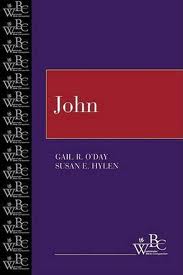
“The 'eternal life' Jesus offers believers is one that is like Jesus' own life"
"At the end of the foot washing, Jesus has commanded the disciples to 'love one another' (13:34). In verse 15, love and commandment are again linked. The one who loves Jesus keeps his commandments. The call to remember and keep the commandments is a familiar aspect of Moses' farewell discourse (see Deut. 6:5; 10:12; 11:1-8, 13). Jesus likewise calls on his disciples to keep his commandments: most specifically, the disciple is to love as Jesus loved. The discourse will return to the topics of love and commandment in verse 21. The intervening verses introduce a new topic, the Paraclete or Spirit. As the reader will learn throughout the farewell discourse, the coming of the Paraclete plays a role in the believer's ability to remember and to keep the commandments of Jesus after his departure. One of the Paraclete's roles is to 'remind you of all that I have said to you' (v. 26). The first mention of the Paraclete is found within the context of Jesus' words about keeping his command to love.
Verse 16 is the first reference to the Advocate or Paraclete (Greek, parakletos) (see also 14:26; 15:26-27; 16:7b-11; 16:12-15). The Greek word has a wide range of meanings, which are reflected in its many English translations: 'Comforter,' 'Advocate,' 'Counselor,' 'Helper.'
The Spirit (Paraclete) plays a larger role in the teaching of Jesus in John than in any of the other Gospels. The Paraclete is key to Jesus' preparation of his disciples for their life after his return to God. The prominence of the Paraclete addresses a key set of theological questions: If Jesus as the incarnate Word brings a distinctive revelation of God to the community, what happens when the incarnation ends? Was the revelation of God in Jesus available only for those who had firsthand experience of the historical Jesus and his ministry? Is Jesus' revelation of God limited to one moment in history, or does it have a future beyond its particular historical moment?
The farewell discourse positions the Paraclete as the link between the historical ministry of Jesus and the future life of the church after Jesus' death. Two central roles of the Paraclete emerge from the five Paraclete passages (14:16-17; 14:26; 15:26-27; 16:7-11; 16:12-15) as ways of extending the revelation of God in Jesus into the future: the Paraclete as the ongoing presence of Jesus in the postresurrection community and the Paraclete as teacher and witness. As the ongoing presence of Jesus, the Paraclete abides with the disciples and is not even seen or known by the world (14:16-17). As teacher and witness, the Spirit continues to speak as Jesus has spoken and aids the disciples' interpretation of the events of Jesus' life (14:26; 15:26; 16:13-14).
Jesus and God send the Paraclete to the community as a whole. (Throughout the farewell discourse, Jesus' words are addressed to a 'you' plural.) The Spirit in John is not a private possession of an individual believer. It is a gift to all disciples, witnessing to the life of Jesus and continuing to speak his word. The Spirit testifies to Jesus in the midst of a world that is filled with hatred (15:18-27), providing encouragement to the community in the face of persecution. The love of God made known in the incarnation continues into the life of postresurrection communities through the gift of the Paraclete.
Yet it is not only the Paraclete who will abide in the disciples; John also declares, 'I am coming to you' (v. 18). Jesus promises his future presence with the believing community. This presence is once again characterized by life: 'Because I live, you also will live' (v. 19). In its context here, Jesus' present-tense statement, 'because I live,' refers to Jesus' current life. Sandwiched between the future statements, however, it reminds the reader of the resurrected life Jesus lives after his death. In John, there is no conflict between these two ways of understanding the words 'because I live.' Even before his death and resurrection, Jesus is 'the resurrection and the life' (11:25). The 'eternal life' Jesus offers believers is one that is like Jesus' own life, both as it is witnessed during his earthly life and in his life on the other side of resurrection. Both represent a life that triumphs over the power of death.”
John, O'Day, Gail R. and Hylen, Susan E.
Westminister John Knox Press (Apr 15 2006) pp. 146-49
THE APOCALYPSE OF THE SPIRIT-PARACLETE
The fulfillment of the promised divine eschatological instruction
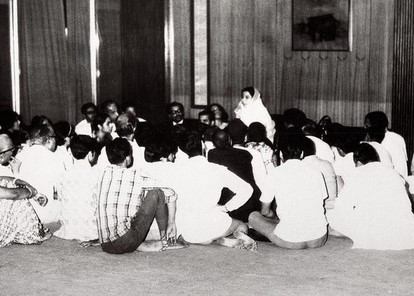
“The Paraclete will come (15:26; 16:7, 8, 13) as Jesus has come into the world (5:43; 16:28; 18:37)... The Paraclete will take the things of Christ (the things that are mine, ek tou emou) and declare them (16:14-15). Bishop Fison describes the humility of the Spirit, 'The true Holy Spirit of God does not advertise Herself: She effaces Herself and advertises Jesus.' ...
It is by the outgoing activity of the Spirit that the divine life communicates itself in and to the creation. The Spirit is God-in-relations. The Paraclete is the divine self-expression which will be and abide with you, and be in you (14:16-17). The Spirit's work is described in terms of utterance: teach you, didasko (14:26), remind you, hypomimnesko (14:26), testify, martyro (15:26), prove wrong, elencho (16:8), guide into truth, hodego (16:13), speak, laleo (16:13, twice), declare, anangello (16:13, 14, 15). The johannine terms describe verbal actions which intend a response in others who will receive (lambano), see (theoreo), or know (ginosko) the Spirit. Such speech-terms link the Spirit with the divine Word. The Spirit's initiatives imply God's personal engagement with humanity. The Spirit comes to be with others; the teaching Spirit implies a community of learners; forgetful persons need a prompter to remind them; one testifies expecting heed to be paid; one speaks and declares in order to be heard. The articulate Spirit is the correlative of the listening, Spirit-informed community.
The final Paraclete passage closes with a threefold repetition of the verb she will declare (anangello), 16:13-15. The Spirit will declare the things that are to come (v.13), and she will declare what is Christ's (vv. 14, 15). The things of Christ are a message that must be heralded...
The intention of the Spirit of truth is the restoration of an alienated, deceived humanity... The teaching role of the Paraclete tends to be remembered as a major emphasis of the Farewell Discourses, yet only 14:26 says She will teach you all things. (Teaching is, however, implied when 16:13-15 says that the Spirit will guide you into all truth, and will speak and declare.) Franz Mussner remarks that the word used in 14:26, didaskein, "means literally 'teach, instruct,' but in John it nearly always means to reveal.” (Stevick 2011, 292-7)
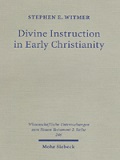
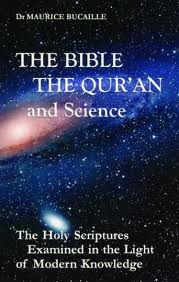
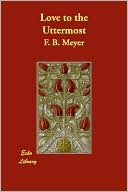
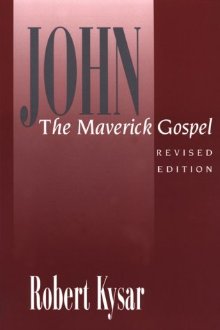
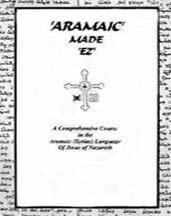
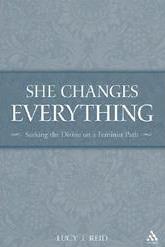
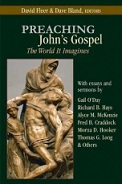
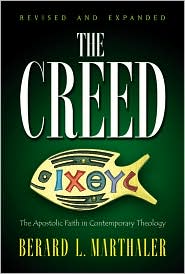
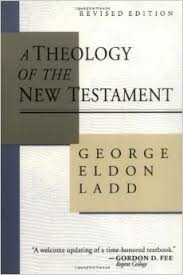
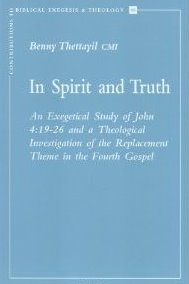

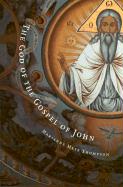
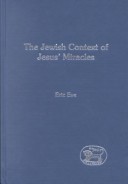
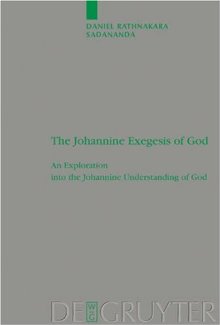
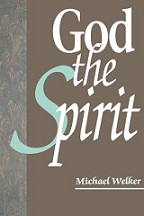
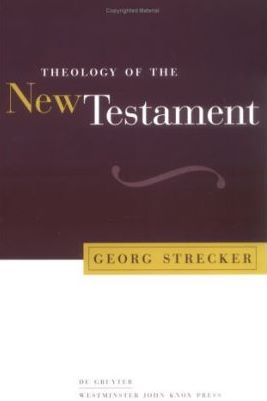
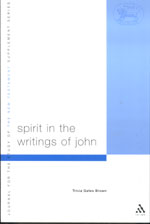
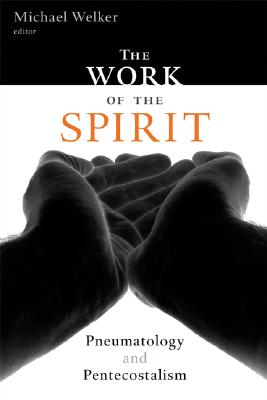
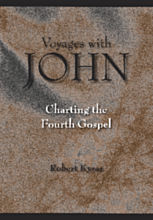
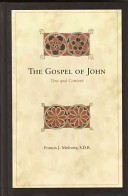
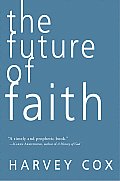
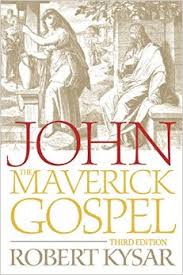
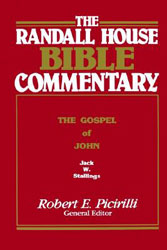

Stephen E. Witmer, Divine instruction in Early Christianity
“Jesus therefore predicts that God will later send a human being to Earth to take up the role defined by John .i.e. to be a prophet who hears God's words and repeats his message to man.”
M. Bucaille, The Bible, the Qur'n, and Science
“And when Jesus foreannounced another Comforter, He must have intended a Person as distinct and helpful as He had been.”
F. B. Meyer, Love to the Utmost
“The Paraclete has a twofold function: to communicate Christ to believers and, to put the world on trial.”
Robert Kysar, John The Meverick Gospel
“But She—the Spirit, the Paraclete...—will teach you everything.”
Danny Mahar, Aramaic Made EZ)
“Grammatical nonsense but evidence of the theological desire to defeminize the Divine.”
Lucy Reid, She Changes Everything
“The functions of the Paraclete spelled out in verses 13-15... are all acts of open and bold speaking in the highest degree.”
David Fleer, Preaching John's Gospel
“The reaction of the world to the Paraclete will be much the same as the world's reaction was to Jesus.”
Berard L. Marthaler, The Creed: The Apostolic Faith in Contemporary Theology
Bultmann calls the “coming of the Redeemer an 'eschatological event,' 'the turning-point of the ages.”
G. Ladd, A Theology of the New Testament
“The Paraclete equated with the Holy Spirit, is the only mediator of the word of the exalted Christ.”
Benny Thettayil, In Spirit and Truth
“The divine Paraclete, and no lessor agency, must show the world how wrong it was about him who was in the right.”
Daniel B. Stevick , Jesus and His Own: A Commentary on John 13-17
Stephen Smalley asserts that “The Spirit-Paraclete ... in John's Gospel is understood as personal, indeed, as a person.”
Marianne Thompson, The God of the Gospel of John
“The Messiah will come and the great age of salvation will dawn (for the pious).”
Eric Eve, The Jewish context of Jesus' Miracles
“The remembrance is to relive and re-enact the Christ event, to bring about new eschatological decision in time and space.”
Daniel Rathnakara Sadananda, The Johannine Exegesis of God
“The Spirit acts in such an international situation as the revealer of 'judgment' on the powers that rule the world.”
Michael Welker, God the Spirit
The Paraclete's “Appearance means that sin, righteousness, and judgment will be revealed.”
Georg Strecker, Theology of the New Testament
“While the Spirit-Paraclete is the true broker, the brokers they rely on are impostors.”
T. G. Brown, Spirit in the writings of John
“The pneumatological activity ... of the Paraclete ... may most helpfully be considered in terms of the salvific working of the hidden Spirit.”
Michael Welker, The work of the Spirit
“The pneuma is the peculiar power by which the word becomes the words of eternal life.”
Robert Kysar, Voyages with John
“The gift of peace, therefore, is intimately associated with the gift of the Spirit-Paraclete.”
Francis J. Moloney, The Gospel of John
“This utopian hope, even when modestly expressed, links Jesus and the prophets to a much wider history of human longing.”
Harvey Cox, The Future of Faith
“Because of the presence of the Paraclete in the life of the believer, the blessings of the end-times—the eschaton—are already present.”
Robert Kysar, John
“They are going, by the Holy Spirit's power, to be part of the greatest miracle of all, bringing men to salvation.”
R. Picirilli, The Randall House Bible Commentary
“The Kingdom of God stands as a comprehensive term for all that the messianic salvation included... is something to be sought here and now (Mt. 6:33) and to be received as children receive a gift (Mk. 10:15 = Lk. 18:16-17).”
G. Ladd, A Theology of the New Testament
“But today is the day I declare that I am the one who has to save the humanity. I declare I am the one who is Adishakti, who is the Mother of all the Mothers, who is the Primordial Mother, the Shakti, the desire of God, who has incarnated on this Earth to give its meaning to itself; to this creation, to human beings and I am sure through My Love and patience and My powers I am going to achieve it.
I was the one who was born again and again. But now in my complete form and complete powers I have come on this Earth not only for salvation of human beings, not only for their emancipation, but for granting them the Kingdom of Heaven, the joy, the bliss that your Father wants to bestow upon you.”
THE MOTHER: Messiah-Paraclete-Ruh
London, UK—December 2, 1979
“I am the one about which Christ has talked... I am the Holy Spirit who has incarnated on this Earth for your realization.”
THE MOTHER: Messiah-Paraclete-Ruh
New York, USA—September 30, 1981
“Tell all the nations and tell all the people all over the Great Message that the Time of Resurrection is here. Now, at this time, and that you are capable of doing it.”
THE MOTHER: Messiah-Paraclete-Ruh
Cowley Manor Seminar, UK—July 31, 1982
Guest: “Hello Mother.”
Shri Mataji: “Yes.”
Guest: “I wanted to know, is the Cool Breeze (Pneuma) that you have spoken about, you feel on the hands the Cool Wind of the Holy Spirit, as spoken about in the Bible?”
Shri Mataji: “Yes. Yes, yes, same thing, same thing. You have done the good job now, I must say.”
Interviewer: “Is it the Holy Spirit?”
Shri Mataji: “Yes, of course, is the Holy Spirit.”
Guest: “Aha... I am feeling it now on my hand through the [not clear]”
Shri Mataji: “It’s good.”
Interviewer: “Did you want to say anything more than that?”
Guest: “No, I just... That’s all I wanted to know because I...”
Shri Mataji: “Because you are thoughtless now. Enjoy yourself.”
Guest: “Thank you.”
THE MOTHER: Messiah-Paraclete-Ruh-Devi
Talkback Radio 2UE, Sydney, Australia—March 31, 1981
Second Guest: “I just want to ask Mother about a quotation from the Bible.”
Interviewer: “Yes, what’s that?”
Guest: “It says, ‘But the comfort of the Holy Spirit that the Father will send in My name would teach you all things.’ I would like to ask Her about that.”
Interviewer: “Could you just repeat the quotation again?”
Guest: “But the Comforter, the Holy Spirit, whom the Father will send in My name, will teach you all things.”
Interviewer: “And that’s from where?”
Guest: “John chapter 14, verse 26.”
Shri Mataji: “I think you should take your realization and then you will know the answer to it. Because, logically if it points out to one person, then you have to reach the conclusion, isn’t it? That’s a logical way of looking at things. But I am not going to say anything or claim anything. It is better you people find out yourself.”
Interviewer: “Does that answer your question?”
Guest: “Is the, is the Comforter on the Earth at the present time? Has the Comforter incarnated? Mataji should be able to tell us this because She said that through these vibrations on Her hands, She ...”
Shri Mataji: “Yes, She is very much here and She’s talking to you now. Can you believe that?”
Guest: “Well, I feel something cool [Pneuma/Prana/Chi] on my hand. Is that some indication of the ...?”
Shri Mataji: “Yes, very much so. So that’s the proof of the thing. You’ve already started feeling it in your hands.”
Guest: “Can I?”
Shri Mataji: “Ask the question, ‘Mother, are you the Comforter?’”
Guest: “Mother, are you the Comforter?”
Shri Mataji: “Ask it thrice.”
Guest: “Mother, are you the Comforter?”
Shri Mataji: “Again.”
Guest: “Mother, are you the Comforter?”
Shri Mataji: “Now, what do you get?”
Guest: “Oh, I feel this kind of cool tingling [Pneuma/Prana/Chi] passing all through my body.”
Shri Mataji: “That’s the answer now.”
THE MOTHER: Messiah-Paraclete-Ruh-Devi
Talkback Radio 2UE, Sydney, Australia—March 31, 1981
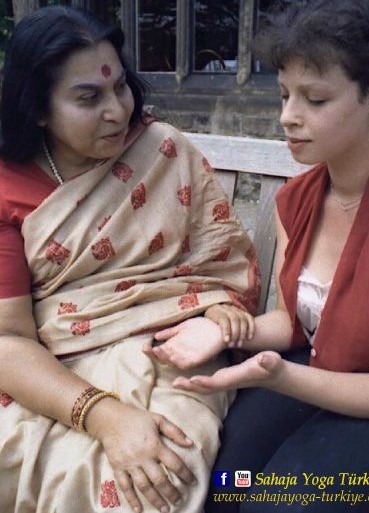
“The Paraclete and the disciples (vv. 25-26): The theme of departure (cf. vv. 1-6; vv. 18-24) returns. There are two "times" in the experience of the disciples: the now as Jesus speaks to them (v. 25) and the future time when the Paraclete, the Holy Spirit, sent by the Father in the name of Jesus, will be with them (v. 26). The Paraclete will replace Jesus' physical presence, teaching them all things and recalling for them everything he has said (v. 26). As Jesus is the Sent One of the Father (cf. 4:34; 5:23; 24, 30, 37; 6:38-40; 7:16; 8:16, 18, 26; 12:44-49), so is the Paraclete sent by the Father. The mission and purpose of the former Paraclete, Jesus (cf. 14:13-14), who speaks and teaches "his own" will continue into the mission and purpose of the "other Paraclete" (cf. v. 16) who teaches and brings back the memory of all that Jesus has said. The time of Jesus is intimately linked with the time after Jesus, and the accepted meaning of a departure has been undermined. The inability of the disciples to understand the words and deeds of Jesus will be overcome as they "remember" what he had said (cf. 2:22) and what had been written of him and done to him (cf. 12:16). The "remembering" will be the fruit of the presence of the Paraclete with the disciples in the in-between-time. In v. 16 Jesus focused on the inability of the world to know the Paraclete, but in v. 26 the gift of the Paraclete to "his own" is developed. As Jesus was with the disciples (v. 25), so will the Paraclete be with the disciples in the midst of hostility and rejection (v. 16). As the story has insisted that Jesus' teaching has revealed God to his disciples, so will the Paraclete recall and continue Jesus' revelation of God to the disciples (v. 26).” (Harrington 1998, 412)
“This is the transformation that has worked, of which Christ has talked, Mohammed Sahib has talked, everybody has talked about this particular time when people will get transformed.”
THE MOTHER: Messiah-Paraclete-Ruh
Chistmas Puja, Ganapatipule, India—25 December 1997
“The Resurrection of Christ has to now be collective Resurrection. This is what is Mahayoga. Has to be the collective Resurrection.”
THE MOTHER: Messiah-Paraclete-Ruh
Easter Puja, London, UK—11 April 1982
“Today, Sahaja Yaga has reached the state of Mahayoga, which is en-masse evolution manifested through it. It is this day’s Yuga Dharma. It is the way the Last Judgment is taking place. Announce it to all the seekers of truth, to all the nations of the world, so that nobody misses the blessings of the divine to achieve their meaning, their absolute, their Spirit.”
THE MOTHER: Messiah-Paraclete-Ruh
MAHA AVATAR, ISSUE 1, JUL-SEP 1980
“The main thing that one has to understand is that the time has come for you to get all that is promised in the scriptures, not only in the Bible but all all the scriptures of the world. The time has come today that you have to become a Christian, a Brahmin, a Pir, through your Kundalini awakening only. There is no other way. And that your Last Judgment is also now.”
THE MOTHER: Messiah-Paraclete-Ruh
“You see, the Holy Ghost is the Mother. When they say about the Holy Ghost, She is the Mother... Now, the principle of Mother is in every, every scripture — has to be there. Now, the Mother's character is that She is the one who is the Womb, She is the one who is the Mother Earth, and She is the one who nourishes you. She nourishes us. You know that. And this Feminine thing in every human being resides as this Kundalini.”
THE MOTHER: Messiah-Paraclete-Ruh-Devi
Radio Interview, Santa Cruz, USA—1 October 1983
“But there is a Primordial Mother which was accepted by all the religions; even the Jews had it... In India, this is called as Adi Shakti. In every religion they had this Mother who was the Primordial Mother.”
THE MOTHER: Messiah-Paraclete-Ruh-Devi
TV Interview, Los Angeles, USA—11 October 1993

Total number of Recorded Talks 3058, Public Programs 1178, Pujas 651 and Other (private conversations) 1249
“What are they awaiting but for the Hour to come upon them suddenly? Its Signs have already come. What good will their Reminder be to them when it does arrive?” (Qur'n, 47:18) “As the above verse indicates, God has revealed some of Doomsday's signs in the Qur'n. In Surat az-Zukhruf 43:61, God informs us that 'He [Jesus] is a Sign of the Hour. Have no doubt about it...' Thus we can say, based particularly on Islamic sources but also on the Old Testament and the New Testament, that we are living in the End Times.” Harun Yahya
Good News (An Naba) of Resurrection (Al-Qiyamah): Videos 3474, Audios 1945, Transcripts 3262 and Events 2413
“Concerning what are they disputing?
Concerning the Great News. [5889]
About which they cannot agree.
Verily, they shall soon (come to) know!
Verily, verily they shall soon (come to) know!”
surah 78:1-5 An Naba (The Great News)
5889. Great News: usually understood to mean the News or Message of the Resurrection.
Abdullah Yusuf Ali, The Holy Qur'n
Amana Corporation, 1989
[Moderator]: “Any other questions?”
[Audience]: “Pardon me for asking this question, but, earlier you talked about the Resurrection and you mentioned about the scriptures, where like in the Hindus scriptures they talk about the Kalki Avatar who will come for the Resurrection, and for the Christians, I know they talk about the return of Christ and all the religions talk about this Resurrection and the belief in the coming of the Messiah. So I just want to know since you say you are going to give the resurrection to us, what is your station?”
Shri Mataji: “In Russia?”
[Audience]: “And are you the promised Messiah? Shri Mataji, are you?”
Shri Mataji: “I see now I am not going to tell you anything about myself, to be very frank. Because see Christ said He was the Son of God, and they crucified Him. I don't want to get crucified. You have to find out. When you become the Spirit you will know what I am. I don't want to say anything about myself.”
THE MOTHER: Messiah-Paraclete-Ruh
Toronto, Canada—October 5, 1993
“Jesus then goes on the offensive against the scribes and Pharisees, pronouncing seven woes against them (Matt. 23:1-36). The final woe identifiers them with all those in Israel's history who have murdered and opposed the prophets. From Abel to Zechariah, all the blood of the righteous will come on them as they typologically fulfill this pattern in the murder of Jesus (23:29-36). They are the wicked tenants who think to kill the son and take his inheritance (21:38). They are seed of the serpent, a brood of vipers (23:33). Their house (the temple?) is desolate, and they will not see Jesus again until they bless him as he comes in the name of the Lord (23:37-39). Somehow, through the judgments Jesus announces against them, salvation will apparently come even for the people of Israel. As Olmstead puts it, Matthew "dares to hope for the day when many of Israel's sons and daughters will embrace Israel's Messiah (23:39), and in that hope engages in a continued mission in her.”” Hamilton 2010, 377
“It is the Mother who can awaken the Kundalini, and that the Kundalini is your own Mother. She is the Holy Ghost within you, the Adi Shakti, and She Herself achieves your transformation. By any talk, by any rationality, by anything, it cannot be done.”
THE MOTHER: Messiah-Paraclete-Ruh-Devi
“She is your pure Mother. She is the Mother who is individually with you. Forget your concepts, and forget your identifications. Please try to understand She is your Mother, waiting for ages to give you your real birth. She is the Holy Ghost within you. She has to give you your realization, and She's just waiting and waiting to do it.”
THE MOTHER: Messiah-Paraclete-Ruh
Sydney, Australia—Mar 22 1981
“The Kundalini is your own mother; your individual mother. And She has tape-recorded all your past and your aspirations. Everything! And She rises because She wants to give you your second birth. But She is your individual mother. You don't share Her with anybody else. Yours is a different, somebody else's is different because the tape-recording is different. We say She is the reflection of the Adi Shakti who is called as Holy Ghost in the Bible.”
THE MOTHER: Messiah-Paraclete-Ruh-Devi
Press Conference July 08 1999—London, UK
Disclaimer: Our material may be copied, printed and distributed by referring to this site. This site also contains copyrighted material the use of which has not always been specifically authorized by the copyright owner. We are making such material available to our readers under the education and research provisions of "fair use" in an effort to advance freedom of inquiry for a better understanding of religious, spiritual and inter-faith issues. The material on this site is distributed without profit. If you wish to use copyrighted material for purposes other than “fair use” you must request permission from the copyright owner.